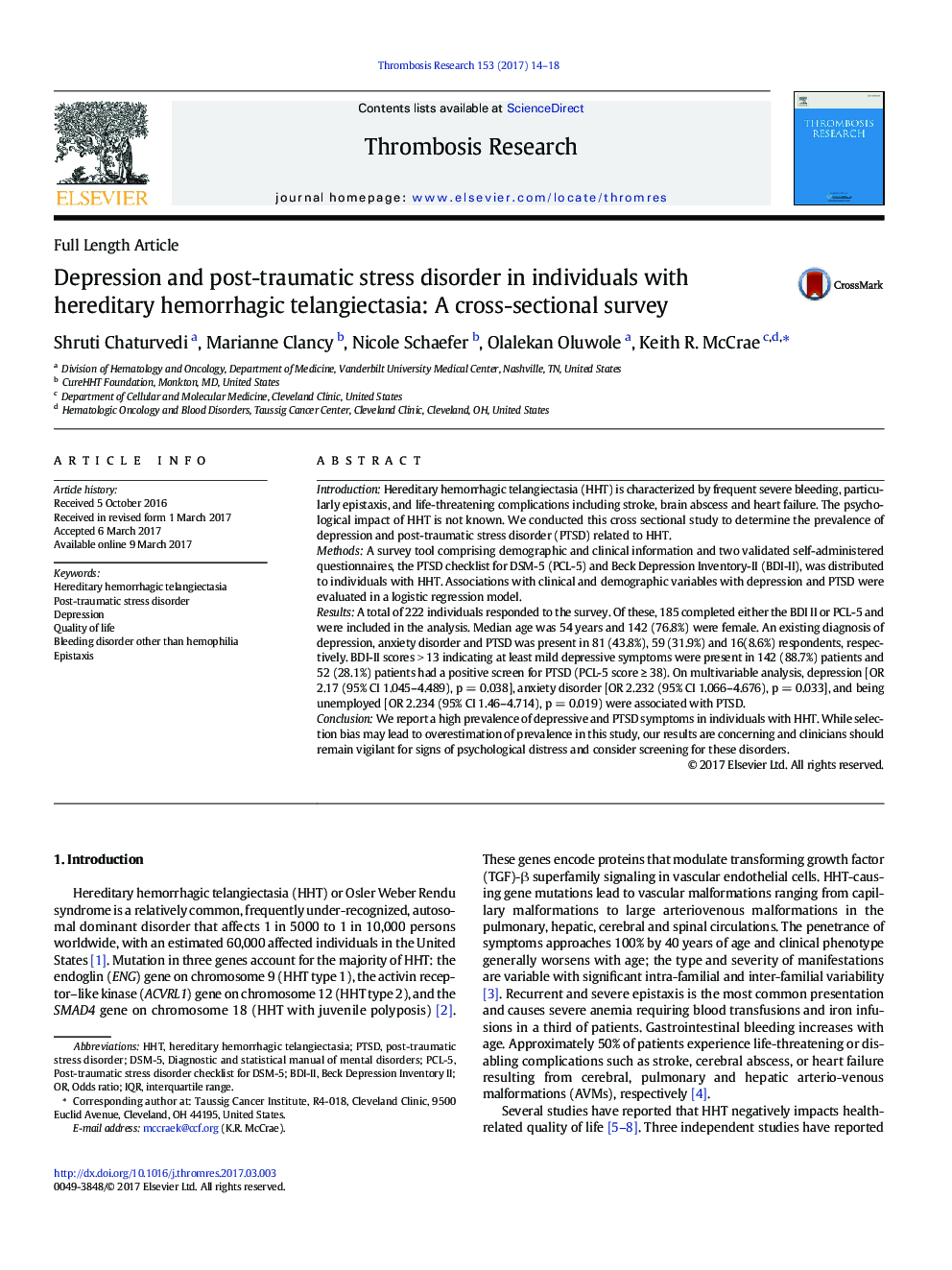| کد مقاله | کد نشریه | سال انتشار | مقاله انگلیسی | نسخه تمام متن |
|---|---|---|---|---|
| 5621958 | 1579190 | 2017 | 5 صفحه PDF | دانلود رایگان |
- There is a high prevalence of depressive (88.7%) and post-traumatic stress disorder (28.1%) symptoms in individuals with HHT.
- Many individuals with HHT are able to identify a traumatic event related to their disease that caused psychological distress.
- Identifying and treating depression and PTSD may improve quality of life in individuals with HHT.
- Further studies are required to evaluate the psychological impact of living with a chronic hematologic disorder such as HHT.
IntroductionHereditary hemorrhagic telangiectasia (HHT) is characterized by frequent severe bleeding, particularly epistaxis, and life-threatening complications including stroke, brain abscess and heart failure. The psychological impact of HHT is not known. We conducted this cross sectional study to determine the prevalence of depression and post-traumatic stress disorder (PTSD) related to HHT.MethodsA survey tool comprising demographic and clinical information and two validated self-administered questionnaires, the PTSD checklist for DSM-5 (PCL-5) and Beck Depression Inventory-II (BDI-II), was distributed to individuals with HHT. Associations with clinical and demographic variables with depression and PTSD were evaluated in a logistic regression model.ResultsA total of 222 individuals responded to the survey. Of these, 185 completed either the BDI II or PCL-5 and were included in the analysis. Median age was 54 years and 142 (76.8%) were female. An existing diagnosis of depression, anxiety disorder and PTSD was present in 81 (43.8%), 59 (31.9%) and 16(8.6%) respondents, respectively. BDI-II scores > 13 indicating at least mild depressive symptoms were present in 142 (88.7%) patients and 52 (28.1%) patients had a positive screen for PTSD (PCL-5 score â¥Â 38). On multivariable analysis, depression [OR 2.17 (95% CI 1.045-4.489), p = 0.038], anxiety disorder [OR 2.232 (95% CI 1.066-4.676), p = 0.033], and being unemployed [OR 2.234 (95% CI 1.46-4.714), p = 0.019) were associated with PTSD.ConclusionWe report a high prevalence of depressive and PTSD symptoms in individuals with HHT. While selection bias may lead to overestimation of prevalence in this study, our results are concerning and clinicians should remain vigilant for signs of psychological distress and consider screening for these disorders.
Journal: Thrombosis Research - Volume 153, May 2017, Pages 14-18
